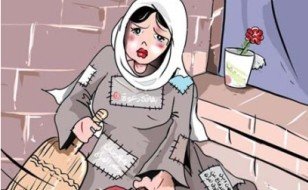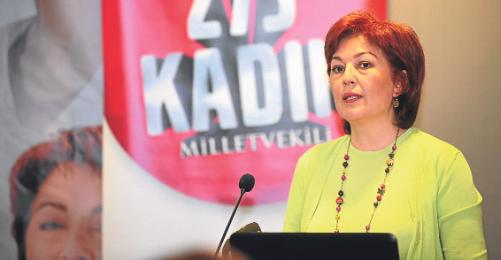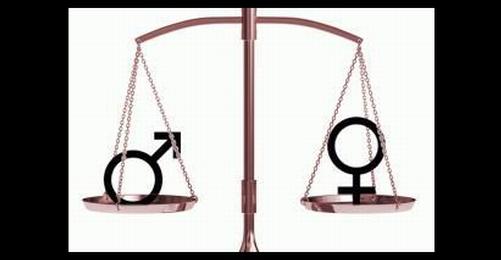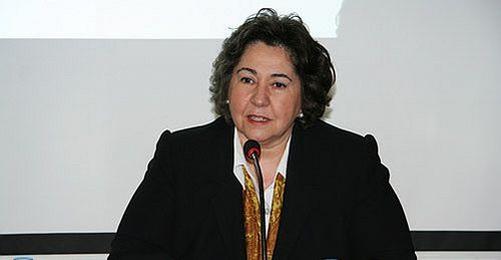They have been forced into certain lives and freedom seems a bit distant.
In Turkey, women are “children” to the day they marry, and then they become “mothers.” That is why Turkey is the country of children of all ages, including mothers aged 15 or 16. But where are the women?
Burcu, a secretary, Ebru, a student, Yasemin, a dayworker, Fatma, a textile worker and Öznur, a manager, all from Istanbul, here tell us about their love/lovelessness, their marriages, their employment or unemployment, in short, about the different ways in which they experience their womanhood.
Her only dream is motherhood
Burcu, 28, has been in Istanbul for the last two years, living in Bolu and Ankara before. She is married and works as a secretary. For her, motherhood and love are vital, followed by marriage, friendship, work, fun, religion and travel.
Her father is retired, and her mother a housewife. Her brother is her best friend. She is content with her marriage and dreaming of being a mother. She is luckier than her mother since she earns money
“Women should be gentle, fastidious and responsible. Being a good housewife and mother is very important. Both working and taking care of the house work is hard. Dealing with my mother-in-law is just another issue.”
She had her first sexual experience when she was 16. “I do not have any taboos. Sexual satisfaction completes a relationship. I talk about my sexuality with my mother and my husband.”
She finds herself natural, friendly and sincere, but wishes she were slimmer and taller: “I am neither very well groomed nor old fashioned. I like putting on make-up and perfume.”
When she thinks about women, naturality, compassion and Claudia Schiffer pops into her mind. Men recall Tom Cruise: “Men have to be witty, compassionate, dependable, athletic and well-groomed. And he has to know how to manage a woman.”
She wants to travel the world but…
Ebru is 21. Her family emigrated from Greece. She studies graphic design. For her, friendship is most important, followed by fun, travel and love. Work, marriage, motherhood and religion follows.Happiness is just “being unhappy” for her. Her dream is to travel around the world and to make a meaning out of life. She feels free to talk about everything with her parents. Favorite activities are tennis and traveling. She feels freer than her mother.
“I grew up without the feeling the pressure of traditional roles of women. I was never told to restrain from anything based on my gender.’”
She is sporty with a smiling face. She describes herself as “talkative but discreet, funny but not romantic.” She wishes she were slimmer, taller and that she had bigger breasts.
She admires Angelina Jolie, and Brad Pitt, “because they are beautiful/handsome, successful, powerful and intelligent.”
“If I succeed to travel, be brave, and understand the world when I am young, then maybe I can settle and be happy cooking jam like my grandmother while getting older, …”
For her, personal care means looking after her skin, body and soul. She likes shopping and often changes her hair style and perfume “depending on her mood.”
Every spring, she falls in love. “Love makes me brave. I dream of travelling with the man I love. I have to know that he just will be enough for me.”
She had her first sexual experience at the age of 19. “I was scared that if he could not sleep with me, he would go to someone else. It was a beautiful and sophisticated relationship. This relaxation has reflected on all my relationships.”
She finds pleasure and satisfaction crucial, but she cannot forget her mother’s lectures on “honour” and “virginity.” She does not use birth control pills just in case her mother would find about them.
My husband raped me
Yasemin is from the Black Sea region, a Laz. She has been in Istanbul for four years. She has been married since she was 16, and gave birth at 17. She cleans apartments, helping her husband who is a janitor. For her religion comes first, followed by work, friendship, motherhood, travel and fun. Love and marriage come last.
She grew up without a father, so her mother was also a “father” to her. To avoid “bad mouth” she was inclined to an arranged marriage. What followed is perilous sex life, constant problems with her mother-in-law, unemployment and poverty:
“The first night we did not have intercourse. The second night, he raped me in order to fulfill the expectations of the family. That’s why I don’t get any pleasure from sex anymore. My responsibilities also stop me from being able to concentrate on sex.”
Nevertheless, she describes her husband as a “favour from Allah”: “My husband is a caring father. He loves me because I do my duties well. I thank Allah for my happiness.”
She is a “strong” and “wise” woman: “When I took up a paying job, I felt strong. In order to feel self-confident, it is important to take care of oneself. I don’t go out without putting cream on.”
“Love is, being scared of touching for fear of breaking it.”
She is almost confident that she will find the love she has not yet experienced.
My son calls me “aunt”
Fatma is 27 years old and has been in Istanbul since she was 12. She got divorced three months ago. Although she is financially independent, because “young women don’t live alone,” she has moved in with her older sister. Her two-and-a-half year old son living with her mother back in the village thinks that she is his “aunt”.”
“My biggest dream is to own a house, to meet a man who will protect me and my son, and that my son calls me ‘mother’.”
She finds herself strong because she knows how to be happy. “Whatever life throws at me I accept it, because I am strong enough to deal with it, ” she says with dignity.
While she often refers to Islam in this conversation, motherhood comes before religion for her. Then follows marriage, friendship, fun, travel and love.
“I have been working since childhood. In fields, in workshops… I forgot that I am a women but I never forget my duties as a woman. I am fastidious, hard-working, and I always respected my husband.”
She finds her sexuality, as well as pleasure and satisfaction, important,: “Men’s selfishness prevents women from taking pleasure. A man must be able to awaken desire in a woman.”
Fatma is at ease with her body: “I am not a beauty queen, but I am alright. I sometimes go to the hairdresser’s and have my eyebrows plucked.”
For her, men must be “strong and reliable,” and women “honorable.” She says that “honor does not only refer to sexuality”; a woman’s dress, her acquaintances and her compliance with the wisdoms of her elders also counts in that manner. For her, virginity is “something entrusted which a woman gives her husband.”
Yearning for love
Öznur is 25. She lives with her grandfather, aunt and uncle. She has been engaged for three years. She is a manager. She is a fun, witty, excited person. For her the most important thing is religion, followed by motherhood, love, marriage, work, friendship, travel and fun.She cannot forget her mother’s beatings during her childhood. She explains it with the pressure put on her mother in a large family: “My grandfather always ruled.”
Her mother is weak “because she has no financial independence”. That is why she finds earning money important.
She cannot forget how her grandfather behaved when his first male grandchild –Öznur’s brother- was born: the feasts, the animals slaughtered in sacrifice. Even if they have grown up now, the gender discrimination continues.
She only wants peace and tranquility from life. A woman, for Öznur, must be strong, know how to be silent, and be honorable. Men must be intelligent, charismatic, hard-working and successful.
She still yearns about breaking up with a former boyfriend. “This feeling keeps me from falling fully in love again. But I am happy with my fiancé.”
Love, marriage, work
In Turkey, young people can marry at the age of 17 or 18 if the family complies and with a court order. However, according to figures from the Turkish Statistical Foundation, 32 out of 100 women married under the age of 18, and 60 between the ages of 18 and 24 in 2006. The mean age for the first sexual intercourse is 19.2.
One out of three women marries someone who her family had chosen, another one out of three with someone of her own choice but with her family’s consent. The remaining take this decision solely themselves.
Are they love marriages? We don’t know. While no concrete data is available, religious –as opposed to civil- marriages and polygamy still persist, mainly in rural regions.
According to data from the Organization for Economic Cooperation and Development (OECD), 6 out of every 10 women aged 20 to 30 are neither studying nor working. (BB/AG)














